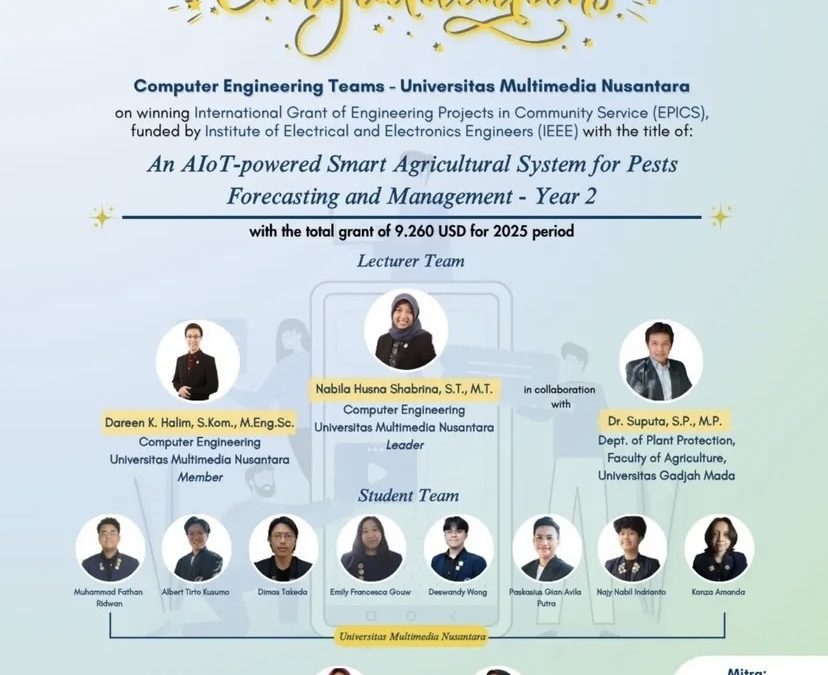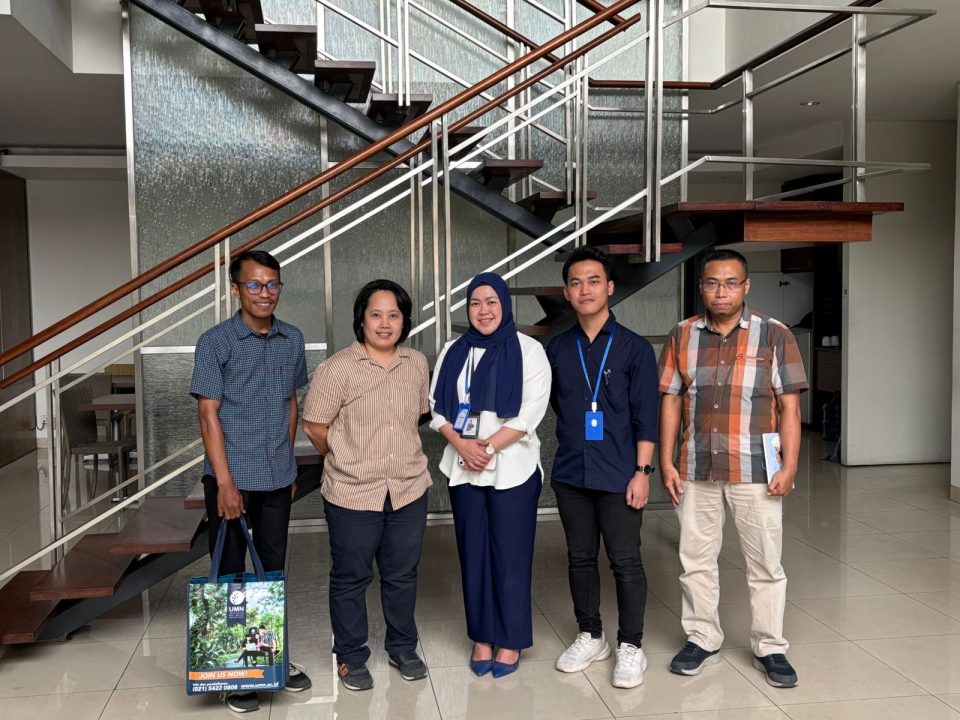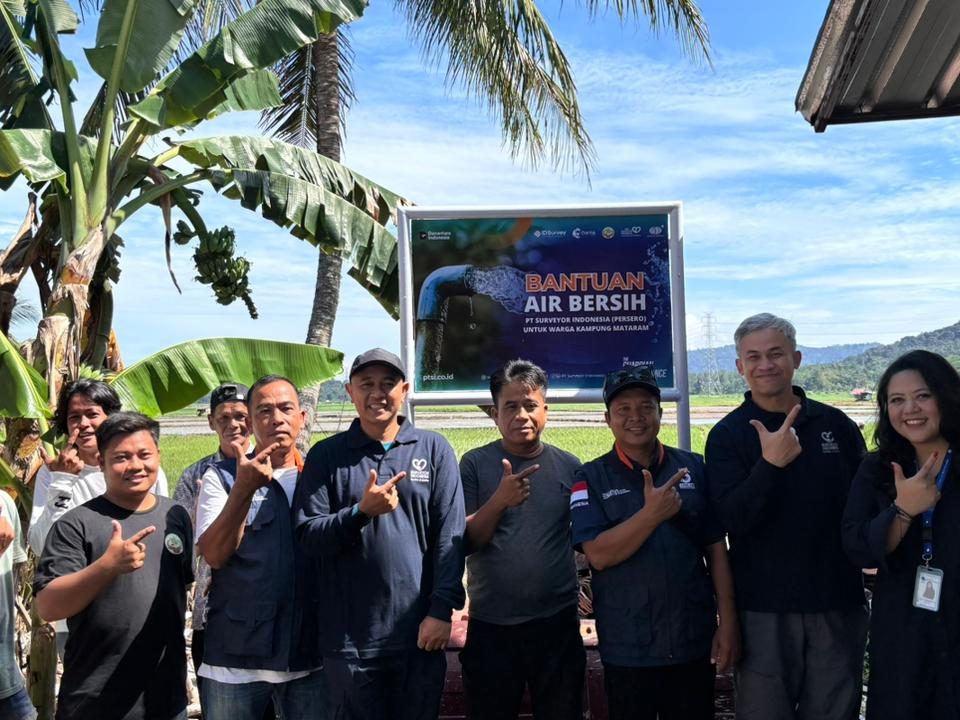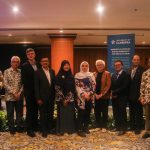
UMN Physics Engineering Lecturer Discusses Public Transportation in A Workshop with The University of Canberra
August 12, 2025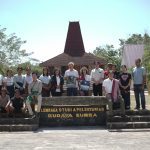
Continuing The Merajut Asa Sumba Program, Yayasan Kawan Lama and UMN Develop A Local Community Capacity to Support Sustainable Tourism
August 18, 2025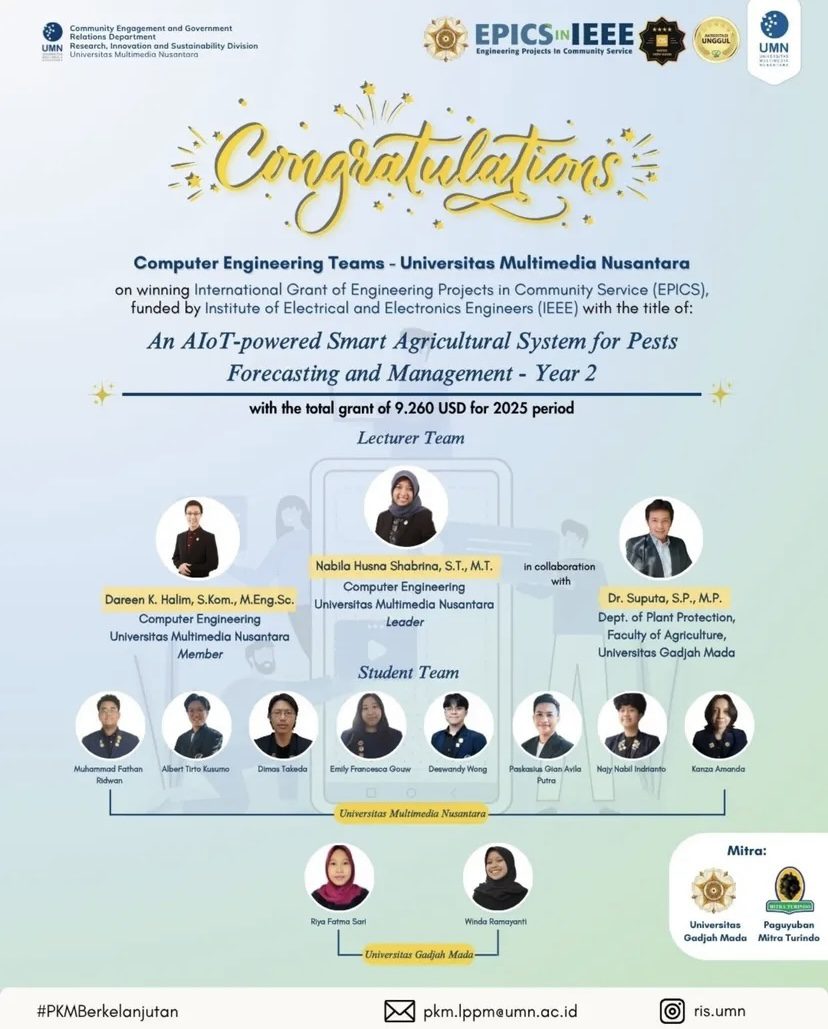
Jajaran tim Dosen serta Mahasiswa UMN dan UGM meraih dana hibah internasional (Dok. UMN)
Tangerang – Universitas Multimedia Nusantara (UMN) Computer Engineering Study Program recently just got their international grant from Engineering Projects in Community Service (EPICS), funded by Institute of Electrical and Electronics Engineering (IEEE). Prior to this, Computer Engineering UMN got their first grant in 2024, this year, the UMN Computer Engineering Program successfully secured another grant from IEEE.
The grant that has been secured by the UMN Computer Engineering study program is also in collaboration with Universitas Gadjah Mada (UGM), Yogyakarta. With the research title “An AIoT-Powered Smart Agricultural System for Pests Forecasting and Management”, this year UMN along with UGM received a grant of USD 9.260.
“This grant is a continuation of the 2024 funding, as our previous project received positive feedback from EPICS. Same as before, this research focuses on developing Artificial Intelligence (AI) and Internet of Things (IoT) systems for salak farming. This year, we tried to create a more advanced and accurate system, so that it can be adopted more widely among farmers,” said Nabila Husna Shabrina, S.T., M.T., UMN Computer Engineering Lecturer and head of the research project.
Nabila also stated that the “My Salak” application she developed was launched in January 2025. My Salak app offers various features for farmers, including IoT sensors to monitor humidity, temperature, rainfall, and light intensity in real time. In addition, My Salak app also includes an automated fruit fly counting feature, as fruit fly calculation is one of the requirements for salak fruit export.
“Obviously in developing this system we faced some challenges, one of them is how to ensure this technology can be more widely adopted by farmers, because this kind of technology is not familiar to them. Our challenge is developing a system to be as simple as possible, so that it’ll be easy to understand and use. Beside that, we also need to have more discussion with the farmer to understand the problem and give them the right solutions”, add Nabila.
Nabila expects this research will be useful and have a positive impact not only within the scope of salak farming but also be adopted by other farmers. She also hopes that this study can serve as an example of UMN’s continuous commitment to making meaningful contributions and creating a positive impact for the wider community.
This research is carried out in line with contributions and support toward achieving the Sustainable Development Goals (SDGs), particularly SDG 2 (Zero Hunger) through improving agricultural productivity, SDG 9 (Industry, Innovation, and Infrastructure) by developing applications for farmers, SDG 12 (Responsible Consumption and Production) through efficient resource production, and SDG 13 (Climate Action) by utilizing IoT and AI data to help farmers adapt to climate change and dynamic pest patterns.
By Rachel Tiffany | UMN News Service
English Translation By Rachel Tiffany
Kuliah di Jakarta untuk jurusan program studi Informatika| Sistem Informasi | Teknik Komputer | Teknik Elektro | Teknik Fisika | Akuntansi | Manajemen| Komunikasi Strategis | Jurnalistik | Desain Komunikasi Visual | Film dan Animasi | Arsitektur | D3 Perhotelan , di Universitas Multimedia Nusantara.

